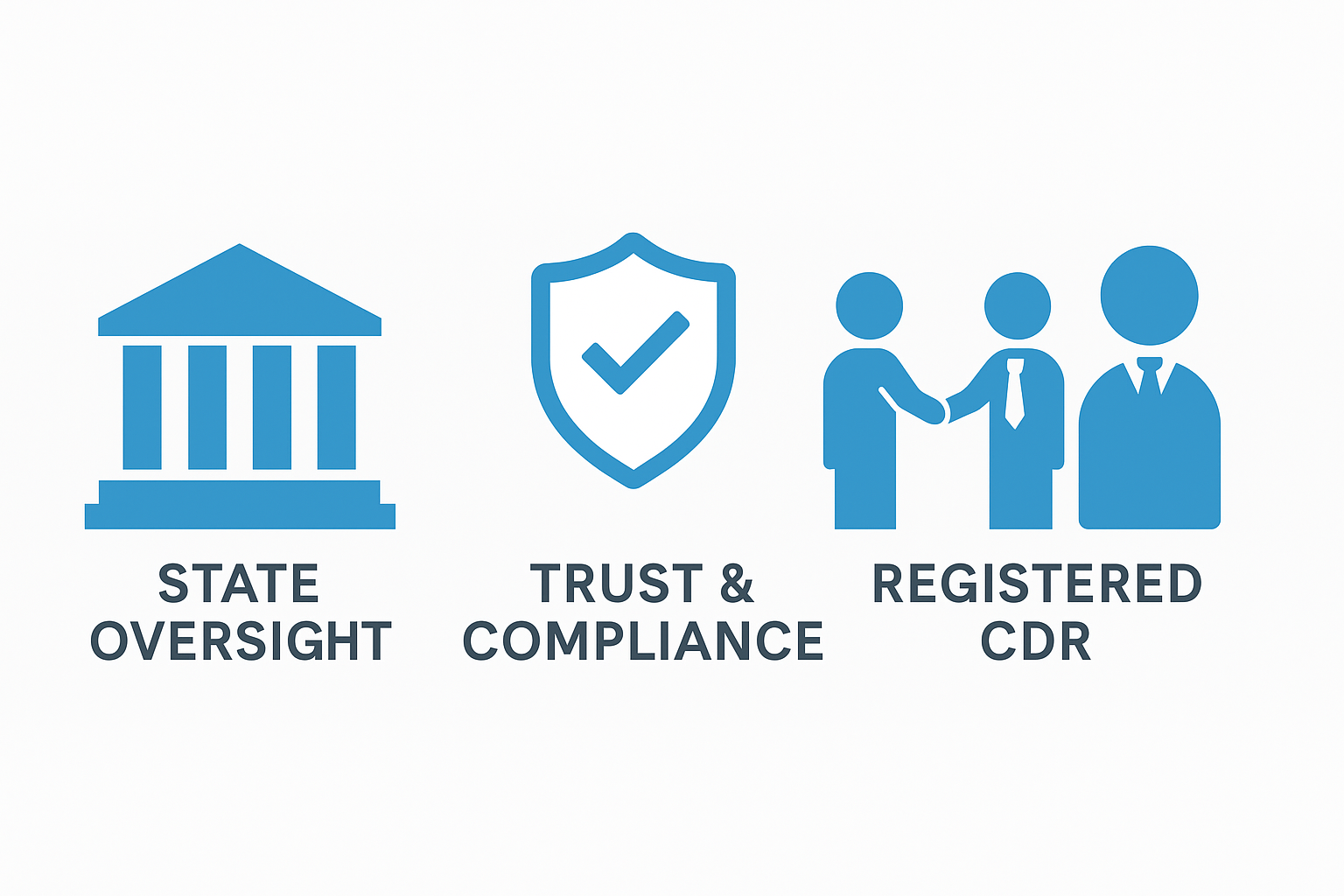What Is a Claimant Designated Representative (CDR) — and Why States Regulate Them
A Claimant Designated Representative (CDR) is a professional engaged by a claimant to help recover unclaimed property. States register and regulate CDRs to protect claimants and promote transparency. Using a CDR is optional—businesses and individuals can always file directly with the state.

What a CDR Does
A CDR acts on the claimant's behalf to assemble documentation, prepare claims, and communicate with state unclaimed property programs. Some states also provide structured data access and standardized forms for registered representatives to streamline processing.
Why States Register and Regulate CDRs

Is a CDR Required?
No. Claimants are free to file directly with their state's unclaimed property program. A CDR is a choice—often valuable for businesses with multi-state exposure, legacy entities, or complex documentation needs—because it adds process rigor, reduces errors, and saves time.
When Businesses Choose to Use a CDR
- Multi-state operations: Different rules, timing, and portals.
- Large or complex claims: Mergers, old names/EINs, or multiple property types.
- Documentation support: Entity proof, authority letters, bank evidence, address history.
- Cycle-time and accuracy: Clean submissions reduce rejections and back-and-forth.

How to Proceed
If you prefer to self-file, visit your state's official unclaimed property website (links are available through NAUPA). If you'd rather partner with a registered CDR for efficiency and guidance, we're here to help.